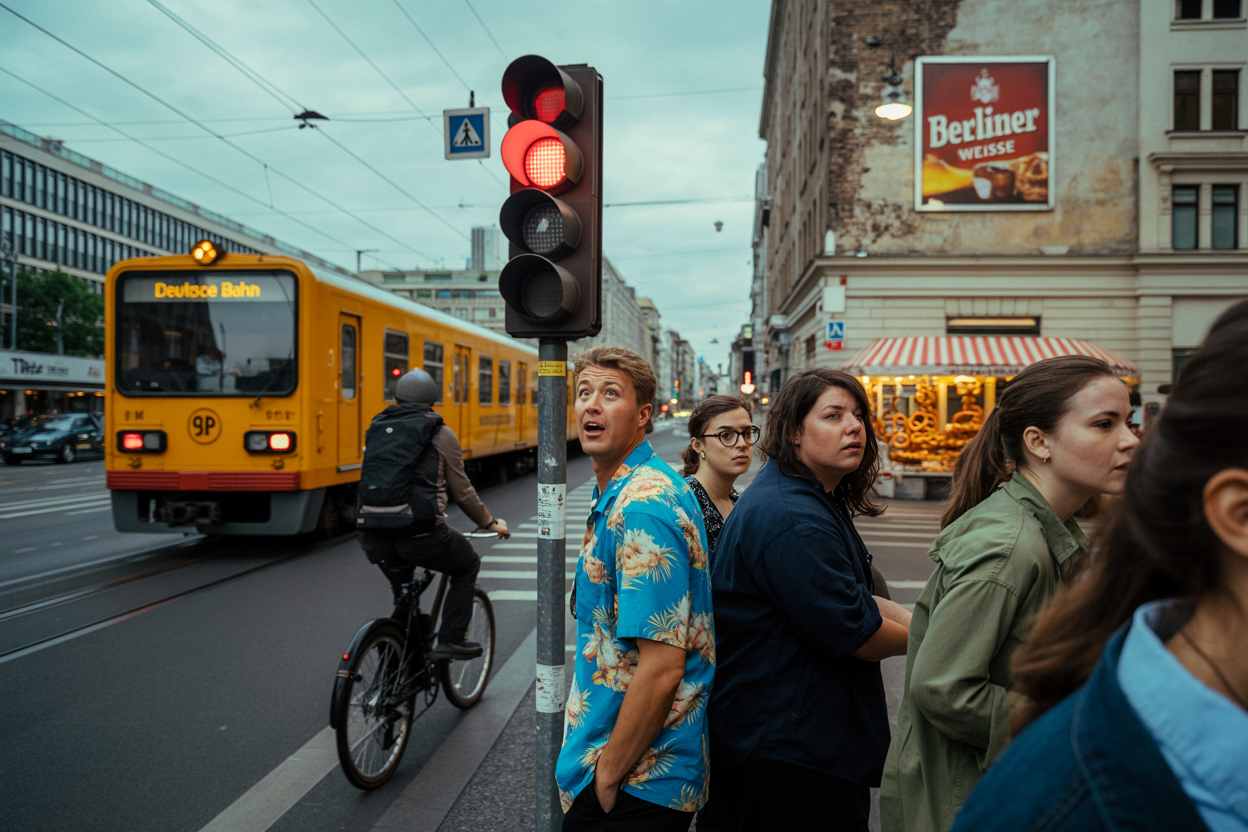Traveling to Germany? Prepare for an unforgettable adventure filled with stunning castles, steins of beer, punctual trains (mostly), and some very straightforward locals.
But before you pack your bags and try your best “Guten Tag,” there are a few things you absolutely need to know some hilarious, others crucial, and all surprisingly true.
Here are 17 must-knows that will save you from awkward stares, culture shock, and unnecessary confusion while making your trip to Germany so much smoother.
1. Jaywalking in Germany Might Just Get You Publicly Shamed by a Granny
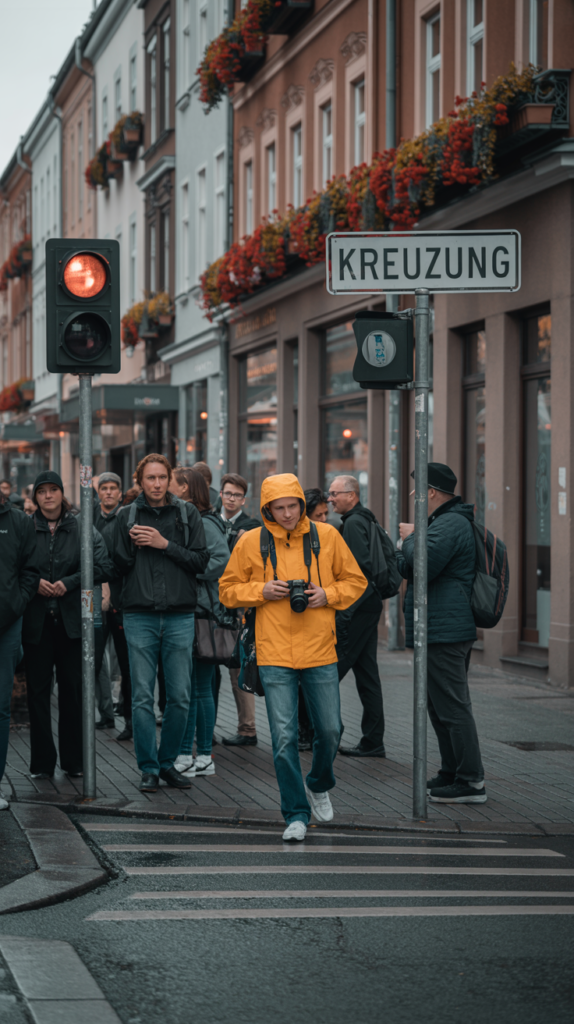
In many countries, you can casually stroll across an empty street when there’s no traffic.
But in Germany? That’s a cultural no-go. Pedestrians here religiously wait for the green light to cross and not just because it’s the law.
It’s deeply ingrained behavior, a sign of discipline and consideration for others, especially children.
Imagine this: You’re standing at a red pedestrian light at 7 a.m. The streets are empty.
You’re jet-lagged, holding a coffee, and just want to get to the bakery. You look left, look right not a car in sight.
You step into the street and hear a stern voice bark at you in German.
A sweet-looking older woman is glaring at you like you just kicked her dachshund.
You’ve broken a social contract one that says, “We follow the rules here.”
Why it matters: Germans view jaywalking as not just dangerous but irresponsible.
It’s especially frowned upon near schools or if children are around you’re seen as setting a bad example.
Locals may call you out, loudly and unapologetically.
Helpful Tip: Always wait for the Ampelmännchen (the little green pedestrian light figure) before crossing.
Even if you’re in a rush waiting just 20 seconds might save you a confrontation or fine (yes, it’s a real offense).
Pro Tip: In Berlin, the pedestrian light symbols differ in former East vs. West.
The East Berlin Ampelmännchen is a beloved symbol even made into souvenirs.
Crossing properly here isn’t just lawful, it’s cultural respect.
2. Germans Love Rules More Than They Love Sausages and That’s Saying Something
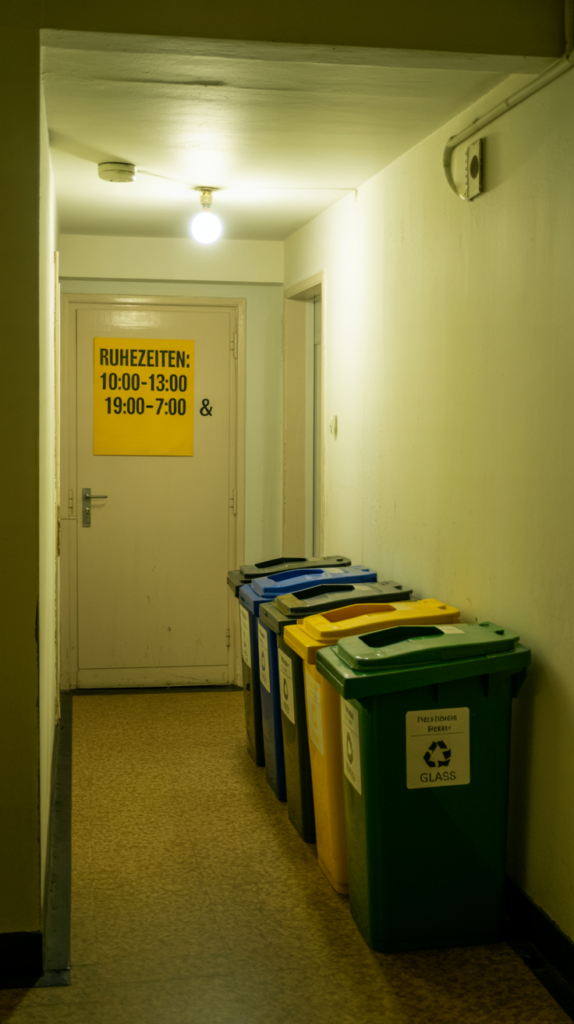
If you’re coming from a country where “rules are more like guidelines,” brace yourself.
Germany operates on a rule-based system from traffic and recycling to quiet hours and line etiquette.
Rules are not optional suggestions here; they’re followed with near-religious dedication.
And they actually work which is why Germans get visibly irritated when people ignore them.
Expect the following:
- Assigned bike lanes are sacred ground (don’t walk in them!)
- Recycling has its own user manual
- Apartment buildings enforce strict quiet hours (Ruhezeit)
- Escalators? Stand on the right, walk on the left no exceptions
Why it matters: Breaking rules here doesn’t make you look cool or independent it makes you look careless or disrespectful.
Even seemingly minor things, like throwing a glass bottle in the wrong bin, can draw sharp comments.
Helpful Tip: If you’re staying in an Airbnb, your host may expect you to separate waste into bio, plastic/packaging, paper, and general.
Not doing so can result in angry notes or worse a scolding email.
Pro Tip: Ruhezeit (quiet time) is typically from 10 PM to 6 AM and all day Sunday.
No vacuuming, hammering, or even loud laughter.
Your neighbors will knock or call the police and the law is on their side.
Funny? Yes. But it’s also part of what makes Germany run like clockwork.
Respect the rules, and you’ll enjoy how smooth life can be here.
3. Customer Service in Germany Is Efficient… and That’s It
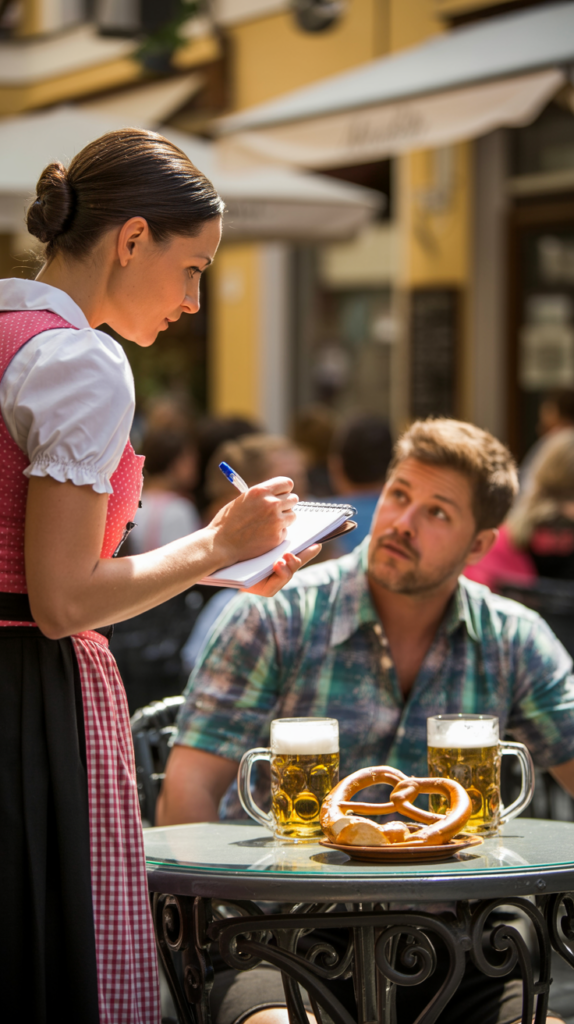
First-time travelers often describe German customer service as “cold,” “unfriendly,” or “robotic.”
But that’s because many of us come from cultures where salespeople are trained to be bubbly and overly accommodating.
In Germany, the customer isn’t always right and nobody’s pretending otherwise.
Here, service is functional. You get what you pay for, and no one is paid to entertain you with fake smiles.
Don’t expect idle chit-chat at checkout or a server who checks in every five minutes.
That’s not rudeness it’s professional distance. You’re not their friend; you’re a customer.
Why it matters: Misinterpreting this as hostility can affect how you experience Germany.
Understanding the cultural logic behind it helps avoid disappointment.
Helpful Tip: In restaurants, you may need to wave slightly or say “Entschuldigung” (excuse me) to get the server’s attention they won’t hover.
When you’re ready to pay, ask directly: “Zahlen, bitte.”
Pro Tip: Tipping is modest. Round up the bill or add about 5–10%.
Tell the server the total you want to pay don’t leave the money on the table.
For example, if your bill is €21.60, say “23, bitte” and hand them the cash/card.
Bonus awkward moment: If you try to pay separately without saying so upfront, be ready for a sigh.
Germans usually split the bill precisely, so say “Getrennt, bitte” if you want separate checks.
Want me to continue with Part 2 (Tips 4–6) in the same expanded style?
This will include:
- The paid toilet surprise
- Why cash is still king
- Germany’s quiet, anti-small-talk energy
Let me know, and I’ll continue right away this will be a full 4000+ word post across multiple message
4. You Have to Pay to Pee Welcome to Germany

You might think you’ve traveled to one of the most advanced countries in Europe, but nothing says “humbling travel experience” like desperately needing a toilet only to find a turnstile demanding €1 before you can enter.
Yes, in Germany, you often have to pay to use public restrooms and not just at gas stations or rest stops.
Airports, train stations, malls, restaurants (unless you’re a customer) it’s fair game.
The fee typically ranges from €0.50 to €1, and it’s not optional.
There’s usually someone sitting in a little booth collecting money, or a machine you have to feed coins into.
Why it matters: When nature calls, and you don’t have coins? You’re in trouble.
Germany doesn’t do “free public toilets” the way some countries do.
Helpful Tip: Always keep some small change (coins!) in your pocket or wallet especially €0.50 and €1 coins.
Some restrooms will give you a voucher (Wertbon) for €0.50 that you can use toward a purchase at a nearby shop or café, especially in train stations.
It’s a tiny silver lining.
Pro Tip: In many autobahn service stations, you’ll encounter Sanifair restrooms.
These are usually clean and high-tech. You insert €1, get a voucher, and go.
The doors often open automatically with a robot voice welcoming you. Sounds futuristic until you’re frantically digging through your backpack for coins.
Bonus warning: “WC” is the standard sign for restrooms.
Don’t look for “restroom” or “toilet” in English it’s always “WC” in train stations and public areas.
5. Despite Being a Tech Giant, Germany Is Weirdly Addicted to Cash
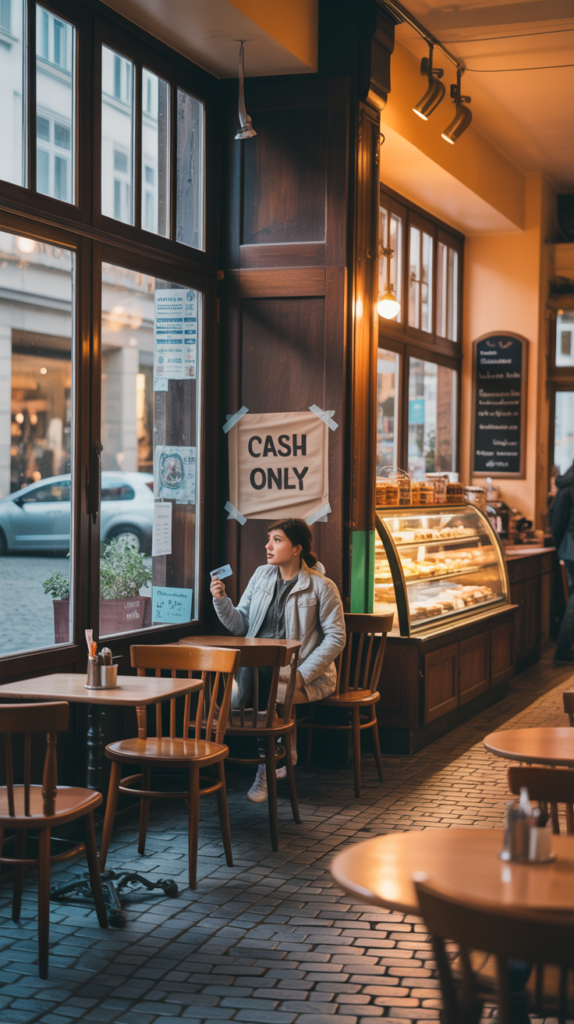
You’re in Berlin, sipping an espresso in a stylish café with minimalist furniture and a €2,000 La Marzocco espresso machine behind the bar.
You pull out your card to pay and the barista shakes their head. “Nur Bar.” (Cash only.) Welcome to Germany, where many small businesses still operate like it’s 1997.
Despite being an economic powerhouse, Germany has a strangely cash-first culture.
Many restaurants, bakeries, bars, and even boutique shops still don’t accept credit or debit cards or only accept local bank cards (EC cards).
Tourists, especially from the U.S. or UK, are often stunned.
Why it matters: If you don’t carry cash, you might find yourself washing dishes for that schnitzel.
Joking (sort of). It’s a real headache especially in rural areas or non-touristy neighborhoods.
Helpful Tip: Always carry at least €50–100 in cash per day, especially if you’re planning to eat out, grab coffee, or shop at local markets.
Don’t assume cards will be accepted unless you’re in a chain store, hotel, or supermarket.
Pro Tip: Stick to major bank ATMs like Sparkasse, Deutsche Bank, Commerzbank, or Volksbank to avoid outrageous ATM fees.
Avoid small, off-brand ATMs that charge €5+ per transaction. Always choose to be charged in euros, not your home currency, to avoid bad conversion rates.
Fun fact: Germany’s love of cash stems from a combination of privacy concerns, distrust of credit, and a cultural habit of financial responsibility.
You’ll often hear Germans say, “Mit Bargeld hat man den besten Überblick” meaning “With cash, you have the best control of your money.”
6. Don’t Expect Small Talk Germans Aren’t Rude, Just… Efficient

If you’re used to chatting with strangers in line, exchanging smiles with your barista, or hearing “How’s your day going?” from a cashier, Germany might feel… cold.
But here’s the deal: Germans aren’t unfriendly they just don’t do small talk.
It’s not part of the cultural playbook. Interactions are meant to be purpose-driven and efficient.
There’s no fluff. If you’re standing in line, people won’t make conversation.
If you’re buying groceries, the cashier will scan your items quickly, give the total, and expect you to move along no “have a great day!” or chitchat about the weather.
Why it matters: Travelers often misread this as rudeness or coldness.
But it’s simply a different communication style.
Germans value sincerity over politeness.
They’re not going to fake a smile just to make you feel comfortable and they don’t expect it in return.
Helpful Tip: Be polite but direct.
Say “Hallo,” “Bitte” (please), and “Danke” (thank you), but don’t try to joke around or make small talk unless the other person initiates.
In social settings, once you are invited into a conversation, Germans can be warm, funny, and incredibly loyal friends but you have to break through the initial wall first.
Pro Tip: Learn these phrases for smoother interactions:
- “Entschuldigung” (Excuse me)
- “Könnten Sie mir helfen?” (Could you help me?)
- “Ich spreche nur ein bisschen Deutsch” (I only speak a little German)
Bonus Insight: The lack of small talk means Germans are amazing listeners.
7. Sundays in Germany Are Basically a Cultural Shutdown Plan Accordingly
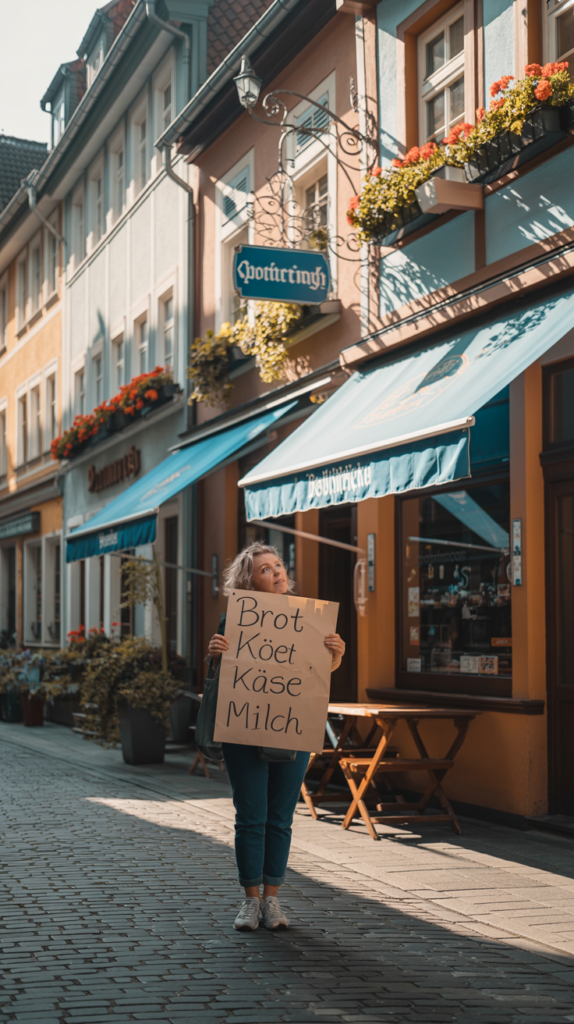
It’s Sunday morning. You’re craving coffee, you forgot toothpaste, and you decide to pop into the store… only to discover that everything is closed.
And I mean everything supermarkets, clothing stores, pharmacies, even many restaurants.
The only signs of life? Church bells and locals casually strolling through the park.
Welcome to Sunday in Germany, where the law mandates a day of rest.
Known as “Ruhetag” (rest day), this isn’t just tradition it’s backed by government regulation.
The philosophy: people should have one day a week where they aren’t expected to shop, clean, or run errands. Sounds peaceful unless you need deodorant.
Why it matters: If you’re not prepared, Sunday will hit you like a cold German winter.
No groceries, no drugstores, and limited dining options.
Helpful Tip: Do your grocery shopping on Friday or Saturday supermarkets close by 8 PM (some at 9 PM), and they’ll be packed Saturday afternoon with everyone else panic-buying.
Pro Tip: Bakeries often open on Sunday mornings for a few hours, especially in southern Germany.
Grab a fresh pretzel or croissant while you can — by noon, they’re closed too.
Bonus Insight: Embrace it.
Go for a forest walk (a favorite Sunday activity), visit a museum, or join the locals in a long brunch.
Don’t try to fight the stillness lean into it.
That’s the German way.
8. Germans Are Brutally Honest and It’s Kind of Amazing
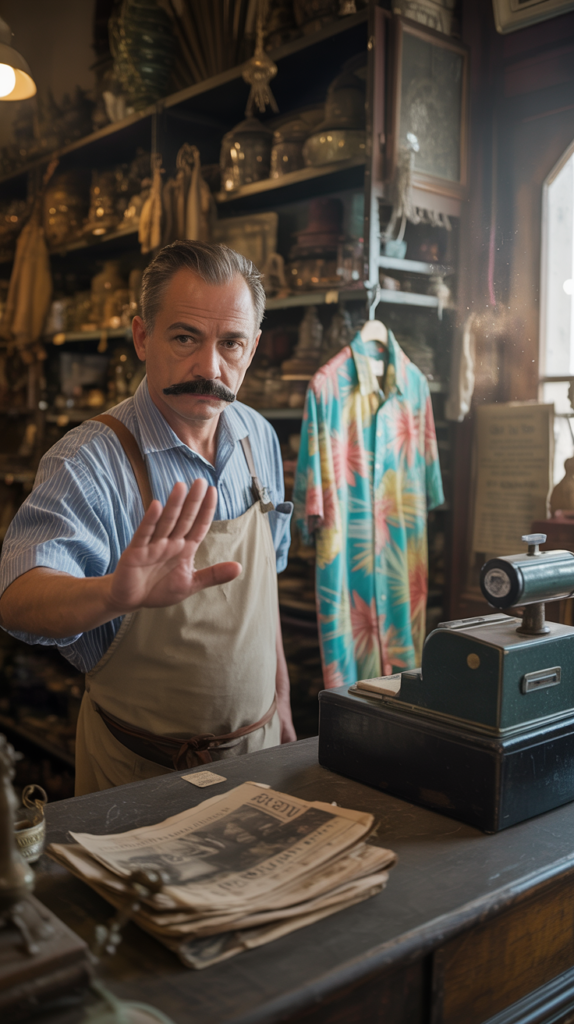
Imagine this: You walk into a shop, excited to buy a scarf. You ask the clerk, “What do you think of this color?” Without missing a beat, she says, “It doesn’t suit your skin tone.
Try navy instead.” No sugarcoating. No fake smile.
Just straight-up truth.
Welcome to the wonderful world of German bluntness, where honesty is considered a virtue and diplomacy is optional.
While in many cultures it’s normal to “be nice” even when you don’t mean it, Germans see honesty as respect. If they lie to you even to spare your feelings that’s considered rude.
Why it matters: Travelers often misinterpret this as rudeness or coldness. But really, it’s refreshing.
You’ll always know where you stand.
Whether it’s a hotel concierge, a tour guide, or a stranger on the street if they think something’s not right, they’ll tell you.
Helpful Tip: Don’t get defensive. If a local corrects your pronunciation, points out a mistake, or gives an unsolicited opinion take it as a favor, not an attack.
Pro Tip: Want an honest restaurant recommendation? Ask a German.
They’ll never say “Oh everything’s great!” they’ll tell you exactly what’s worth ordering and what’s not.
Bonus: Germans also have a great sense of dry, witty humor once they know you.
Break through the formal exterior and you’ll find deeply funny, loyal people who value quality friendships over surface-level pleasantries.
9. Trains Are Punctual Until They Aren’t (Deutsc
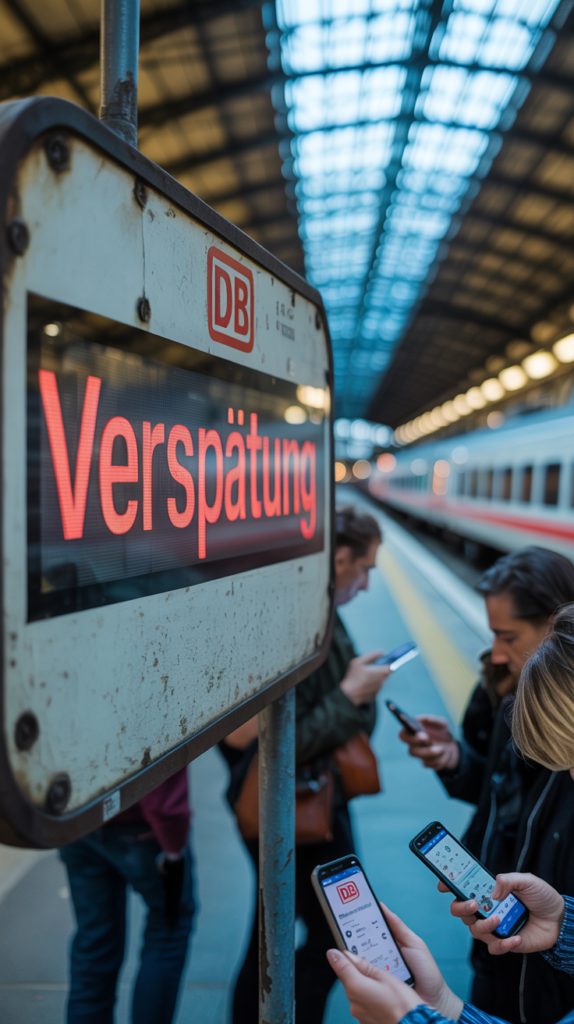
You’ve probably heard that German trains are famously punctual.
That reputation still holds in places like Japan… but in modern Germany, Deutsche Bahn (DB) is more like your always-late friend who keeps insisting “I’m five minutes away” when they haven’t left the house.
While Germany still has one of the most expansive train systems in Europe, delays are increasingly common, especially on long-distance routes.
It’s not unusual for trains to be 15–30 minutes late, and if you have a tight connection? Yikes.
Why it matters: Missed connections, wasted ticket money, and confusion at huge stations like Frankfurt Hauptbahnhof can derail your whole itinerary literally.
Helpful Tip: Download the DB Navigator app.
It shows real-time delays, platform changes, and lets you book or rebook tickets on the fly.
Pro Tip: If your long-distance train is delayed by more than 60 minutes, you’re eligible for a partial refund under DB’s passenger rights.
Fill out the online form or ask at the info center.
Bonus Tip: Trains with “IC” or “ICE” in the name are high-speed long-distance trains.
They require a specific seat reservation if you want to guarantee a place to sit.
Regional trains (RE or RB) don’t but they can get crowded, especially on weekends.
Final thought: Always leave buffer time between connecting trains especially in winter when weather delays are more common.
10. Beer Is Basically a Food Group But There Are Rules
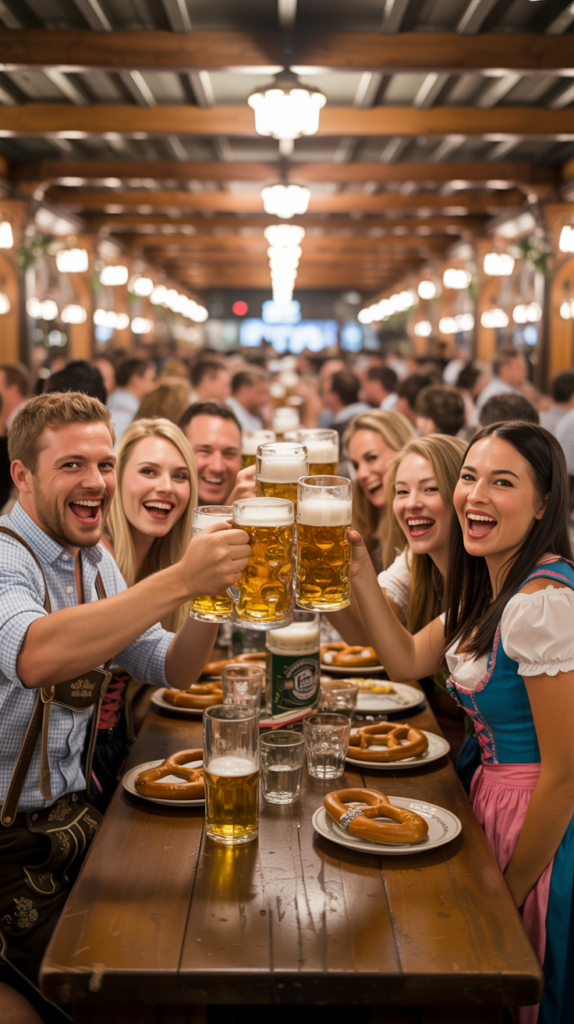
If you think grabbing a beer in Germany is as simple as saying, “One beer, please,” think again.
Germans don’t just drink beer they live and breathe it. But with passion comes tradition, and with tradition comes rules.
Each region has its own beer identity, and ordering the wrong brew in the wrong place is a fast track to being labeled a clueless tourist.
In Cologne? You drink Kölsch, served in small, cylindrical 0.2L glasses and the waiter will keep bringing fresh ones until you cover your glass with a coaster.
In Munich? It’s all about Weißbier (wheat beer) and giant 1-liter Maß glasses, especially during Oktoberfest.
Why it matters: Ordering a Pilsner in a Bavarian beer hall? Sacrilege.
Asking for a “light beer”? Confusing. Beer is tied to identity here.
Helpful Tip: Always ask locals what the local specialty is before ordering.
And never, ever, call it just “beer” say the type, like “Weißbier” or “Helles.”
Pro Tip: When toasting, make eye contact with every person at the table.
It’s not just polite according to superstition, failing to do so means seven years of bad sex.
No one wants that.
Bonus: Public drinking is legal and common, but don’t get rowdy drunkenness in public is still frowned upon unless it’s a festival.
11. Public Nudity? Totally Normal in Saunas, Lakes… and Sometimes Parks
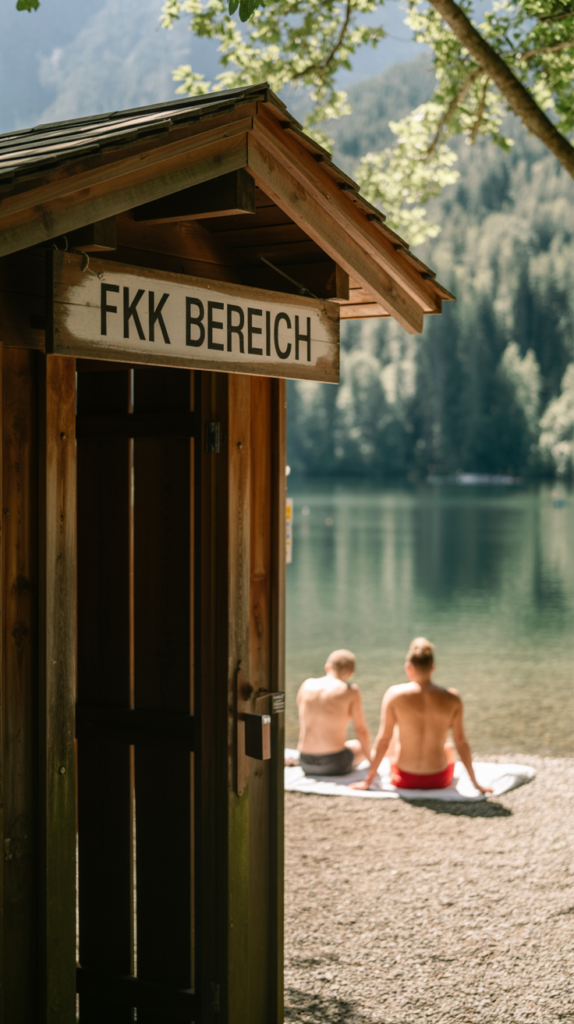
If you grew up in a modest culture, this one might catch you off guard: nudity is not a big deal in Germany. In fact, it’s considered healthy, natural, and not sexual.
Saunas? Completely nude, mixed gender, and mandatory. Swimwear is often forbidden.
Lakes and parks? You may find a “FKK” zone Freikörperkultur or “free body culture” where sunbathing in the buff is common.
Why it matters: Walking into a sauna with a swimsuit will earn you disapproving looks.
Stripping down might feel awkward at first but it’s the norm.
Helpful Tip: If visiting a wellness center or sauna (e.g., Therme Erding near Munich), read the signs.
“Textilfrei” means naked only. “Textilbereich” means swimsuits allowed.
Pro Tip: Bring a large towel to sit or lie on hygiene is key. Also, no talking loudly in saunas.
It’s a place for peace and detox, not gossip.
Extra tip: Don’t gawk. Everyone minds their own business.
Germans treat nudity like you treat a warm shower normal and unworthy of commentary.
12. Never Say “Happy Birthday” Early It’s Basically a Curse
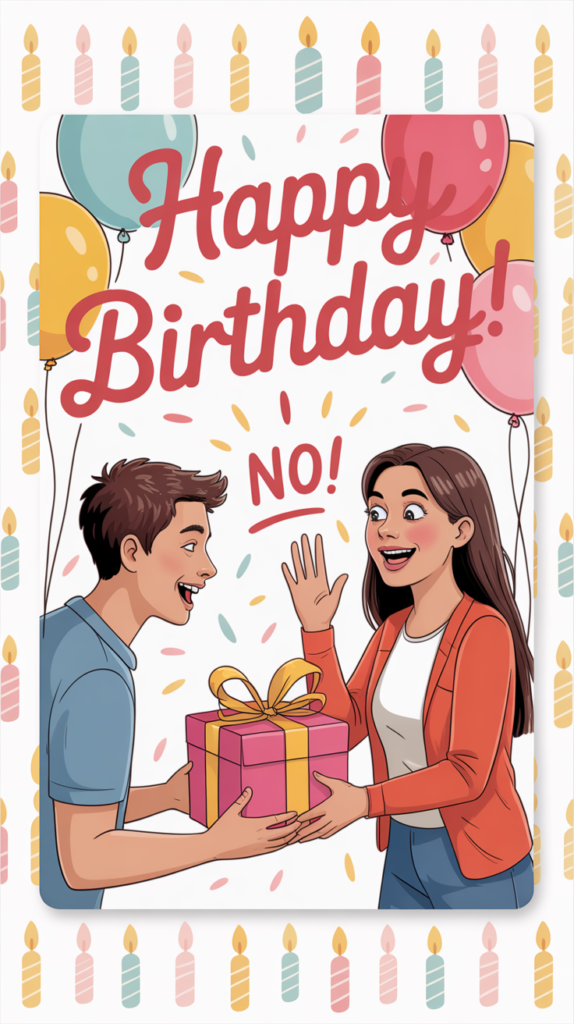
You’re excited. Your German friend’s birthday is tomorrow, but you’re going to be traveling, so you say it a day early.
Big mistake.
Instead of thanks, you get an uncomfortable stare and a nervous laugh.
Why? In Germany, wishing someone “Happy Birthday” before the actual day is considered bad luck. Seriously people believe that early birthday wishes tempt fate.
If something happens before midnight, it’s on you!
Why it matters: You’ll offend someone and freak them out.
Germans are generally not superstitious except when it comes to birthdays.
Helpful Tip: Wait until midnight or the morning of the birthday to send your wishes.
Or simply say something like “I hope you have a great day tomorrow” but leave the actual phrase “Herzlichen Glückwunsch zum Geburtstag” for the day of.
Pro Tip: If attending a birthday dinner, bring a small, thoughtful gift flowers (odd number only!), a bottle of wine, or local chocolate are perfect.
And always greet the birthday person before anyone else when you arrive.
Bonus: Germans often organize and pay for their own birthday parties. The “it’s my treat” mentality still holds strong.
13. Staring Is Totally Normal and No, They’re Not Mad at You
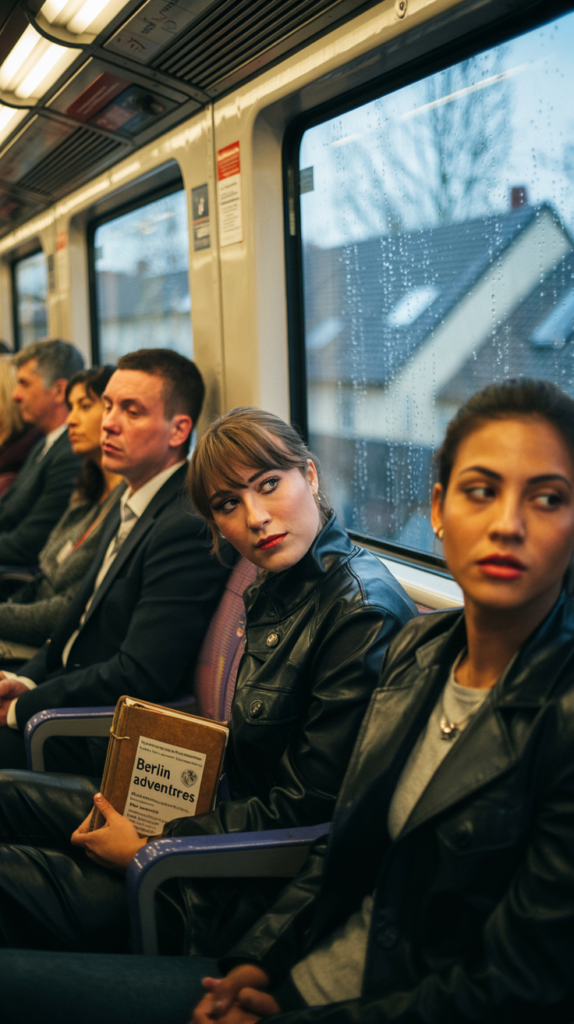
If you’ve been in Germany for more than 48 hours, you’ve probably asked yourself: “Why is that person staring at me?” The answer? They’re not. They’re just… looking. Intensely.
Germans don’t avoid eye contact like in some cultures. In fact, they’ll make and hold eye contact longer than you’re used to.
It’s not meant to be rude or invasive it’s just normal.
Why it matters: Misreading this as aggression or disapproval can make you feel uncomfortable.
But don’t worry they’re not judging your outfit.
Probably.
Helpful Tip: Try not to look away awkwardly.
Staring back isn’t considered rude.
If someone’s genuinely looking at you for too long, a polite smile usually ends it.
Pro Tip: This behavior often shows up on public transport.
Don’t panic. You’re not doing anything wrong.
Germans just don’t feel the same social pressure to look away.
Bonus: If you smile at someone in public, they might look confused smiling at strangers isn’t very common unless you have a reason.
14. German Toilets Are an Engineering Mystery Especially the Flush
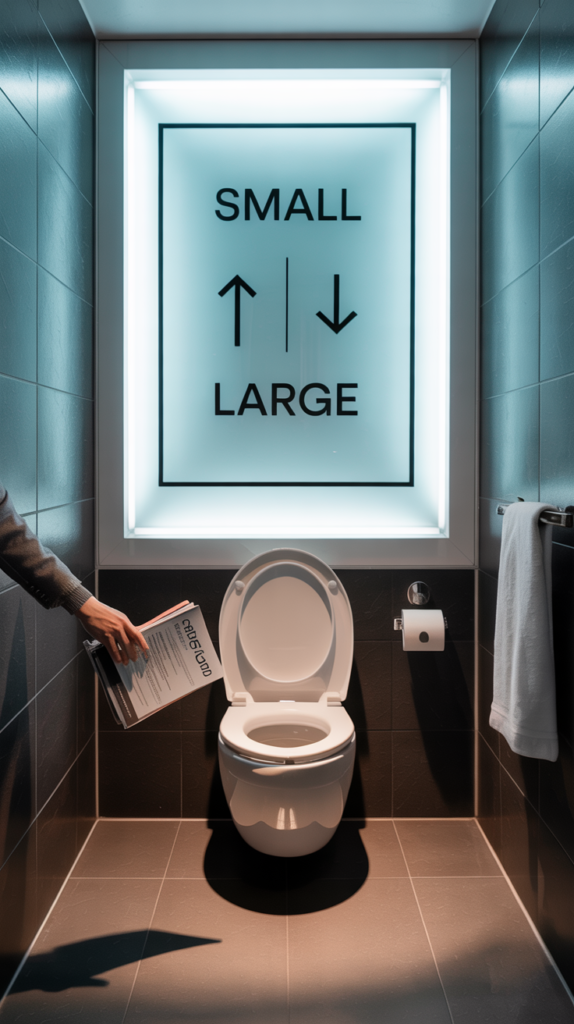
You head into a clean, modern German bathroom, do your business, and then stand there, confused. Where’s the flush? You check under the tank.
You wave your hand around like a magician.
Finally, you realize the flush is a panel on the wall, not a button. And it has two sizes big and small.
Why it matters: Nothing makes you feel more like a foreigner than failing to flush properly. German bathrooms vary some have wall panels, some have foot pedals, and others are just obscure.
Helpful Tip: Look for a large rectangular panel above the toilet that’s often the flush.
Press the big side for a big flush, the small side for a water-saving one.
Pro Tip: Germans are eco-conscious, so don’t use the large flush unless necessary.
It’s not just about water it’s about doing your part.
Funny bonus: Some older German toilets have the infamous “shelf” design.
Yes, a dry shelf where the contents of your visit are visible before they flush away.
It’s supposedly to “inspect your health” but mostly, it’s just awkward.
15. Water Isn’t Free and It’s Probably Sparkling

You sit down at a restaurant, ask for water, and a waiter brings a glass bottle of carbonated water then charges you €3.
What just happened?
In Germany, tap water is safe to drink, but restaurants typically don’t serve it unless you specifically ask (and even then, they might say no).
And most bottled water here is sparkling by default.
Why it matters: You’ll spend €3–5 per person just for water if you don’t know how to order correctly.
That adds up fast.
Helpful Tip: If you want still water, ask for “stilles Wasser.” If you want tap water, try: “Leitungswasser, bitte.”
Just be prepared for a sigh or a flat-out no.
Pro Tip: In supermarkets, bottled water is cheap and comes in three types:
- Sprudel = Full carbonation
- Medium = Light bubbles
- Still = No bubbles
Bring your own water bottle and refill it Germany has many clean fountains and refill stations in cities like Berlin and Munich.
16. Crossing a Bike Lane? Be Ready to Get Yelled At
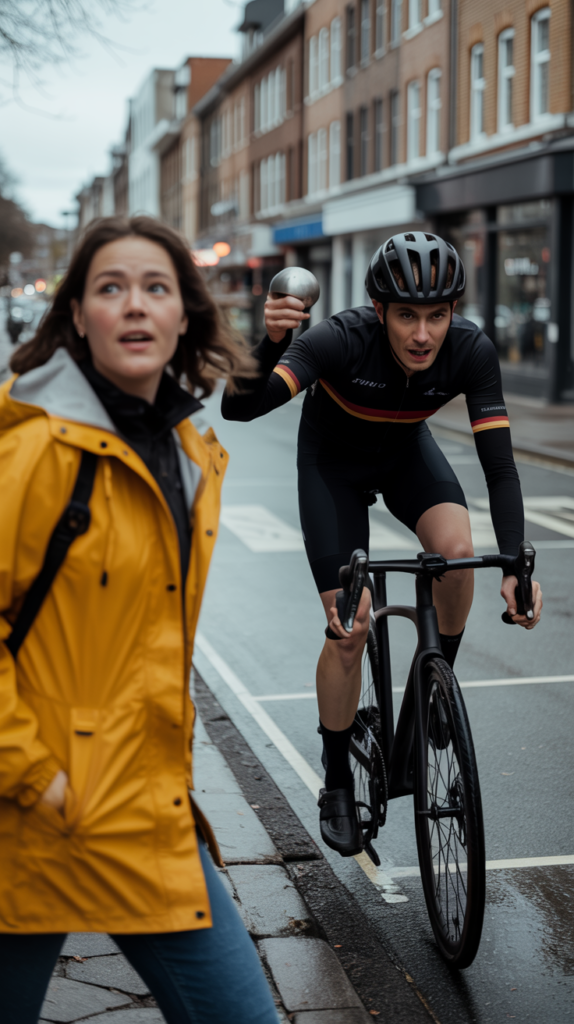
You’re walking peacefully down a wide sidewalk, taking in the sights, when suddenly ding ding! A cyclist zooms by, shouting angrily in German.
What happened? You walked in the bike lane and in Germany, that’s basically a war crime.
Why it matters: German cities have incredibly well-planned infrastructure and that includes dedicated bike lanes, usually separated by different paving or color.
But to locals, pedestrians walking in them are reckless hazards.
Helpful Tip: On sidewalks, the bike lane is often marked with a bicycle symbol or slightly raised/colored bricks.
Stay out of it, even if it’s empty. Cyclists will not stop for you and they have the legal right of way.
Pro Tip: In cities like Berlin or Hamburg, bikes are a primary mode of transport.
Cyclists often go fast and aren’t just joyriding they’re commuting. Respect the lane, and you won’t get cussed out.
Bonus: You can rent bikes with apps like Nextbike or Lime, but always learn the rules first and use proper hand signals when turning.
17. Germans Take Punctuality Very Seriously Like, to the Minute
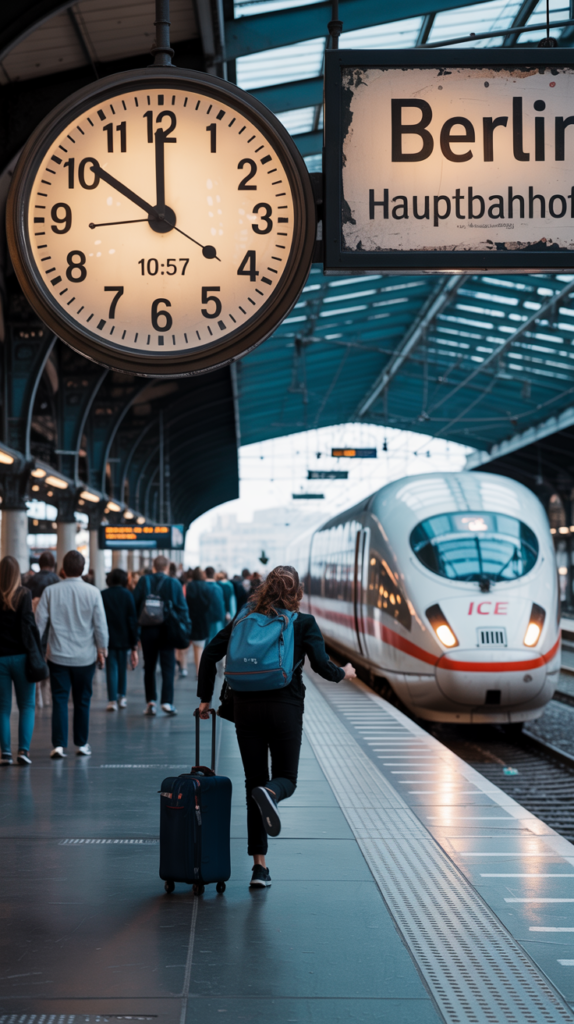
You’re running five minutes late to a group tour or dinner reservation and figure, “It’s no big deal.” But when you arrive, people look annoyed.
Because in Germany, being on time is a sign of respect.
Arriving late is inconsiderate unless you have a really good excuse.
Why it matters: You can actually lose your reservation, spot, or ticket if you’re late.
Punctuality is tied to trust, efficiency, and cultural pride.
Helpful Tip: Always aim to arrive 5 minutes early, especially for trains, guided tours, business meetings, and personal invitations.
Pro Tip: If you’re running late, call or text. Even for casual social events.
A short message like “Ich komme 5 Minuten später” (I’m coming 5 minutes later) shows courtesy.
Funny twist: Some Germans will show up to a party at the exact start time on the invitation not realizing that “fashionably late” is a thing in other countries.
Final Thoughts: You’ll Love Germany Even More Once You “Get” It
Germany might surprise you with its quiet Sundays, paid bathrooms, naked spas, and obsession with recycling.
But behind every quirky moment is a culture built on respect, structure, and sincere living.
Once you know the rules, you’ll appreciate how efficient, clean, and beautifully logical German life really is.
And let’s be honest having a beer at 10 a.m. in a castle courtyard? That alone makes it worth it.

